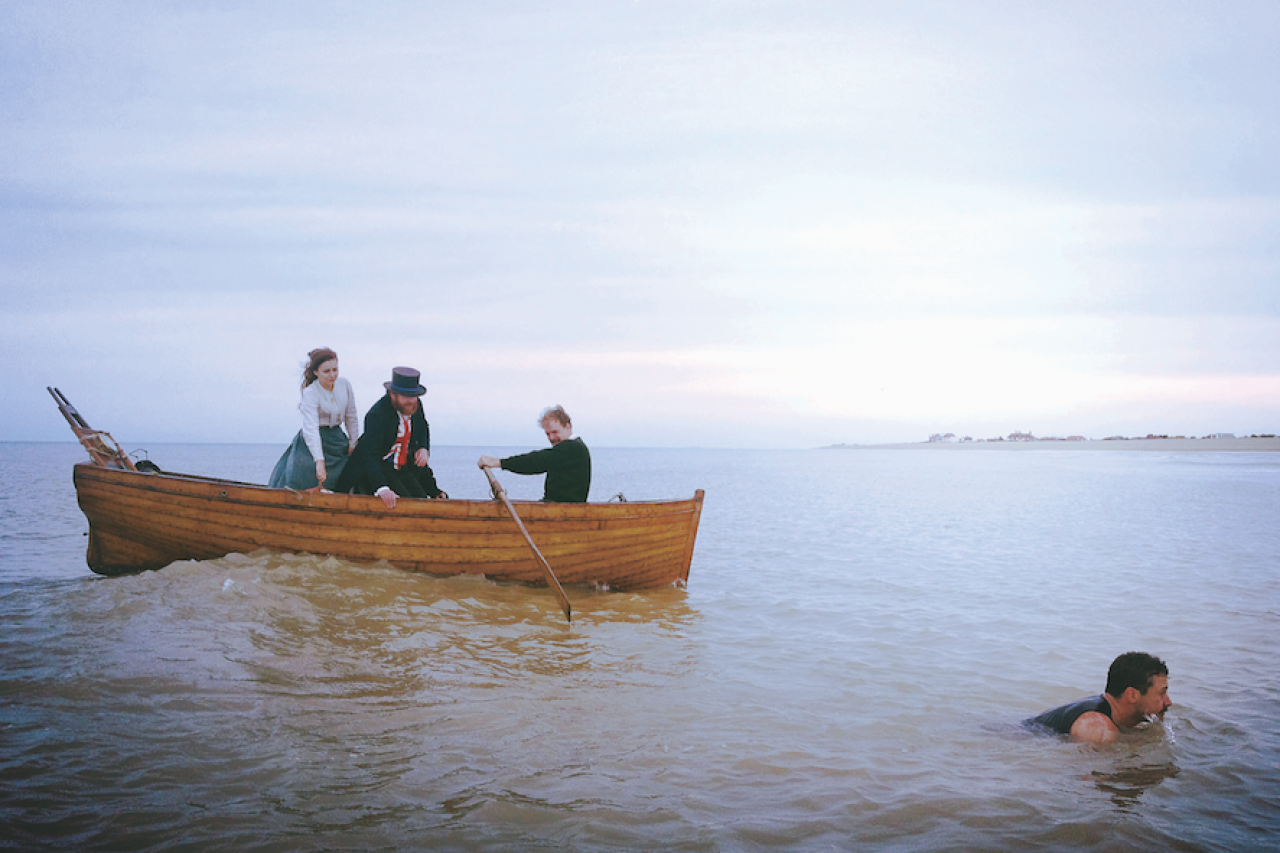The swimmer was tiring rapidly. "His circulation had begun to fail in his lower limbs, and he was obliged to have recourse to stimulants," wrote a reporter who had tagged along in a boat. In the end, no brandy or medicinal potion was enough to avert what one newspaper later dubbed a "complete farce." J.B. Johnson had to abandon his 1873 attempt to swim across the English Channel. Though at 23 Johnson appeared to be in the ideal physical shape to complete the swim, his failure only confirmed what his contemporaries in Victorian England already believed: that the obstacles posed by the channel were too great to overcome. The water is notoriously cold even in midsummer, and a vexing mixture of currents and tides makes it impossible to swim the roughly 22 miles from England to France in a straight line.
However, Johnson's failure only made Matthew Webb's success two years later all the more miraculous. A new film by director Justin Hardy celebrates the forgotten hero who first conquered the channel with a dogged persistence that captured the attention of his fellow Victorians. Filmed as a conventional costume drama, Captain Webb gleefully stacks the odds against its Webb (Warren Brown). For one, few in Britain in the mid-1870s knew anything about swimming, let alone how to train someone to take on such a challenge. Worse still, Webb's coach, the excitable Professor Beckwith (Steve Oram), admits that he does not know how to swim. In one effort to teach his pupil better technique, the intrepid instructor catches a frog and tells Webb to emulate the slippery creature's movements: "Be a frog! Forget the arms, a frog does not have arms," he shouts. It's not surprising when Webb's first attempt to cross the channel fails.
Abandoned by his family and financiers, Webb takes Beckwith's daughter as a consolation prize. Quite the English rose, Agnes (played by Georgia Maguire) is a champion swimmer. More than just Webb's love interest, she's his only remaining supporter—even going so far as to offer her body to Webb's American rival, Paul Boyton (Terry Mynott), if he'll stop sabotaging the captain's next attempt. Fortunately, Boyton declines. A brilliant showman, Boyton has the tempered vitriol, posturing and noisy brinkmanship that make for the perfect antagonist to Webb's shy determination.
Paul Boyton swam the channel first. However, he used a buoyant suit designed by the inventor Clark S. Merriman, which allowed him to half-drift, half-propel himself forward with a wooden oar.
As the captain embarks on his final—and eventually successful—attempt, the director intercuts the swimming with a scene in which Webb tries and fails to rescue a fellow seaman. Though that scene is based on historical fact, it fails to explain the captain's hazardous obsession with swimming the channel. As the exhausted swimmer is besieged by jellyfish, his skin peeling off, it seems like his rationale may have been less a redemption story and more a result of Webb's Victorian sensibilities.
Webb is often perceived as the "inventor" of extreme sports, for the ways in which he pushed the physical and technological limits of his time. But today's base-jumpers and wingsuit-wearers seem to pursue their dangers for largely narcissistic reasons, looking to compensate for the life-or-death risks that have all but vanished from modern life. The less we're in danger of getting killed in our day-to-day, the more some of us crave experiences that hint at our mortality. Instead, Webb belonged to a Victorian cult of "manliness," where valor was the ultimate goal, not excitement for its own sake. He saw himself as a loyal servant to his country, and he considered chivalry and persistence as important as success.



















